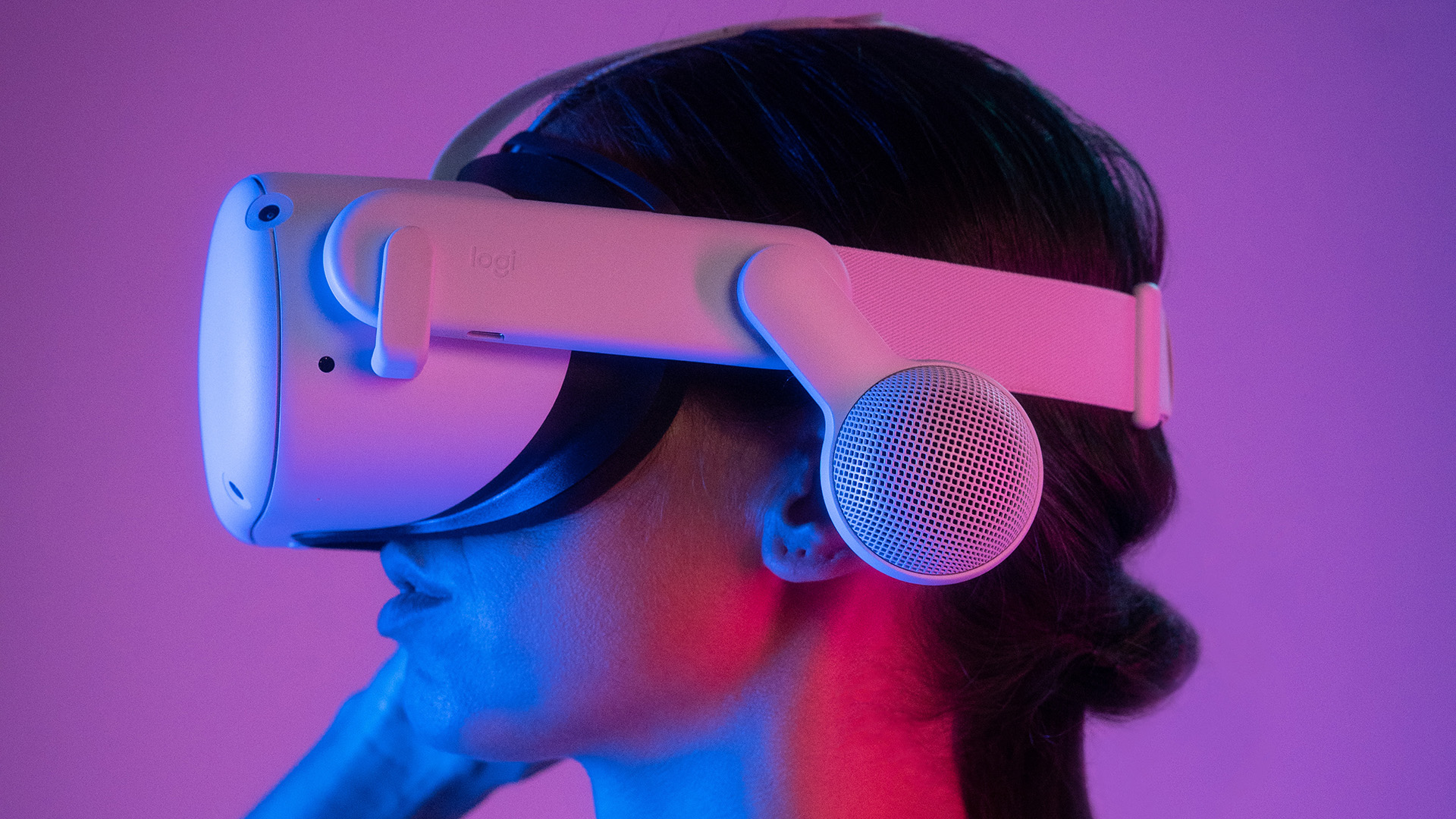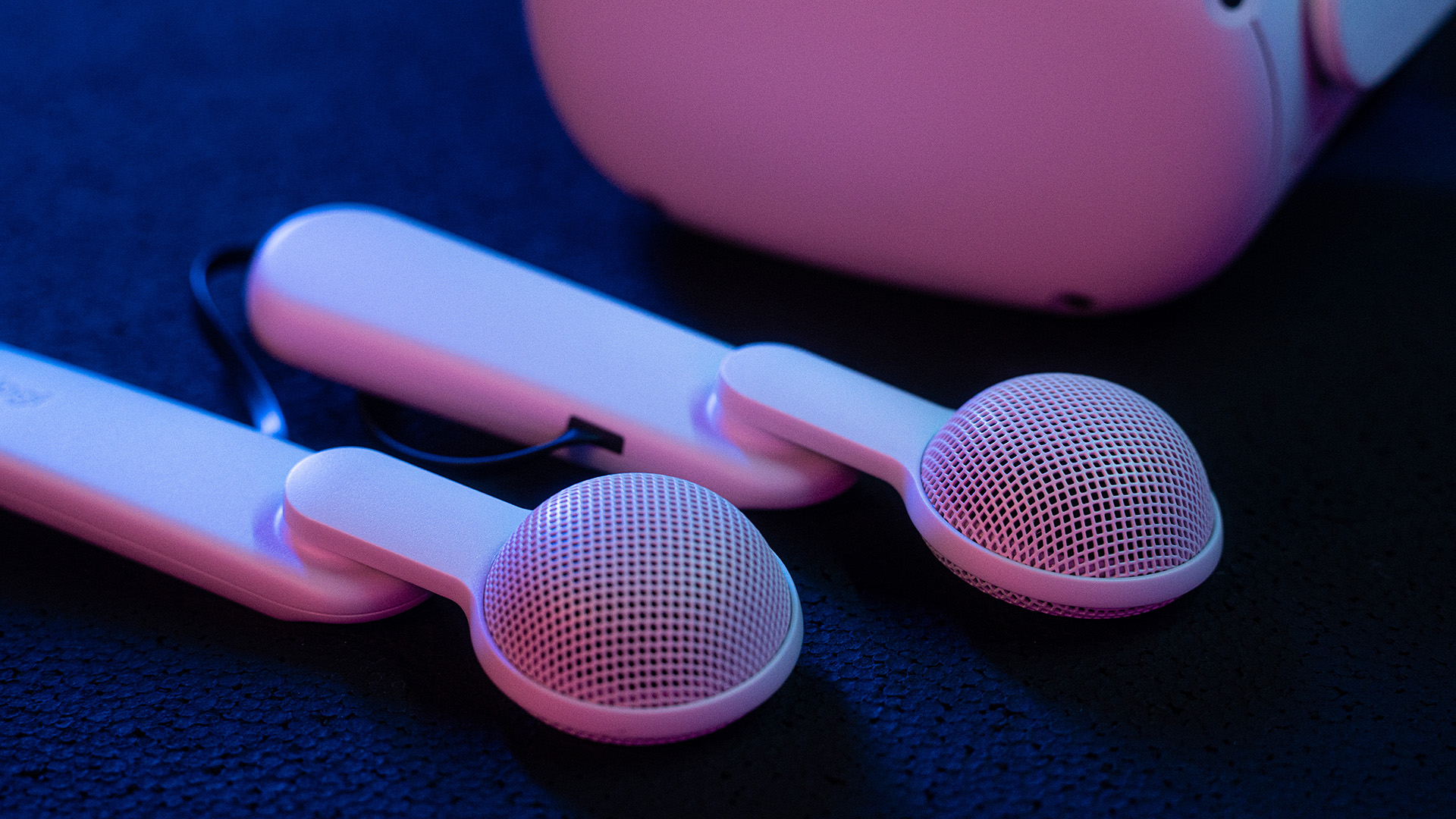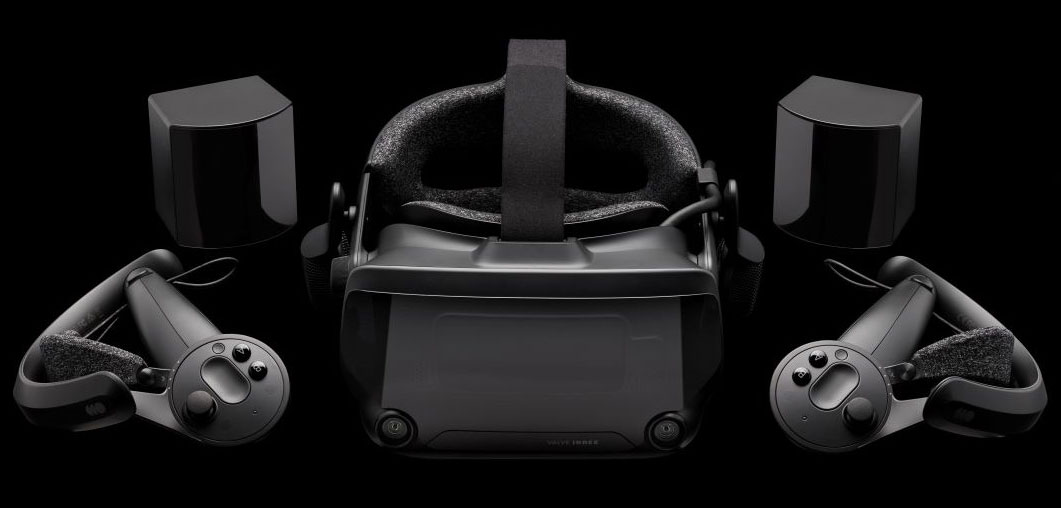Logitech's new VR accessory brings Valve Index audio to the Quest 2
Logitech has taken a leaf out of the Valve's book for its latest Quest 2 audio accessory.

Good audio is crucially important for immersive virtual reality, yet surprisingly today's most popular VR headset, the Meta Quest 2, doesn't excel in this area. Its out-of-the-box audio system is a couple of slim speakers built-in to the headset's strap, which leave a lot to be desired in quality, volume, and directionality. That's why I'm keen to see what Logitech has in store with its latest VR accessory, which aims to level up the Quest 2's weak-hearted audio.
It's called the Logitech G Chorus, and its whole deal is getting two open-back custom-tuned open BMR drivers onto either side of your ears for greatly improved audio in VR.
It works by integrating directly onto the Quest 2's strap mounting arms, which has the added benefit of allowing the Chorus to be compatible with a range of non-standard straps. Logi says hard or soft straps should be just fine either way, which is good if, like me, you've invested in the better balanced Elite strap or something similar.
You'll be adding an extra 182g to the weight of the Quest with the Chorus installed, so I'd probably recommend a more comfortable strap to go with it, anyways.
Since the Chorus connects via USB Type-C, it does take up the port on the VR headset. However, the device includes a USB Type-C passthrough, so charging or linking the Quest to your PC via a cable shouldn't be an issue with the Chorus installed.
Volume control is taken care of by the Quest 2's integrated buttons, and if you want to mute your VR swiftly, you only need to flip the Chorus speakers up and out the way to do so.


Best VR headset: which kit should you choose?
Best graphics card: you need serious GPU power for VR
Best gaming laptop: don't get tied to your desktop in VR
If you've ever used Valve's Index VR headset, you might notice some similarities here. Both adhere to the same basic principle of an off-ear speaker, and the Valve Index also incorporates BMR drivers—a product of its own research on high-end VR audio. I'll admit I was surprised by just how much I loved the off-ear speaker system on the Valve Index—something about it felt like it was far too simple to really deliver. But it really does deliver everything you need in VR: positional audio, plenty of volume, and a surprising amount of isolation from the outside world.
Keep up to date with the most important stories and the best deals, as picked by the PC Gamer team.
If the Chorus can match the Index's directionality and comfort over long periods in VR, I'll be impressed. The Chorus is set to cost $100 when it goes on sale at the end of August (pre-orders open now), so I'm expecting a high standard to justify the cost at the very least.
It is, however, unfortunate for Logitech that Meta has recently increased the price of the Quest 2 by exactly $100, otherwise, this would be an easier purchase for fresh-faced VR owners. When you start to add a couple of expensive accessories to the $500 Quest 2—a comfortable strap, a battery pack, a Link cable, and the improved audio option—you can begin to rack up a price tag not all that far off the already excellent Valve Index at $999.

Jacob earned his first byline writing for his own tech blog. From there, he graduated to professionally breaking things as hardware writer at PCGamesN, and would go on to run the team as hardware editor. He joined PC Gamer's top staff as senior hardware editor before becoming managing editor of the hardware team, and you'll now find him reporting on the latest developments in the technology and gaming industries and testing the newest PC components.

